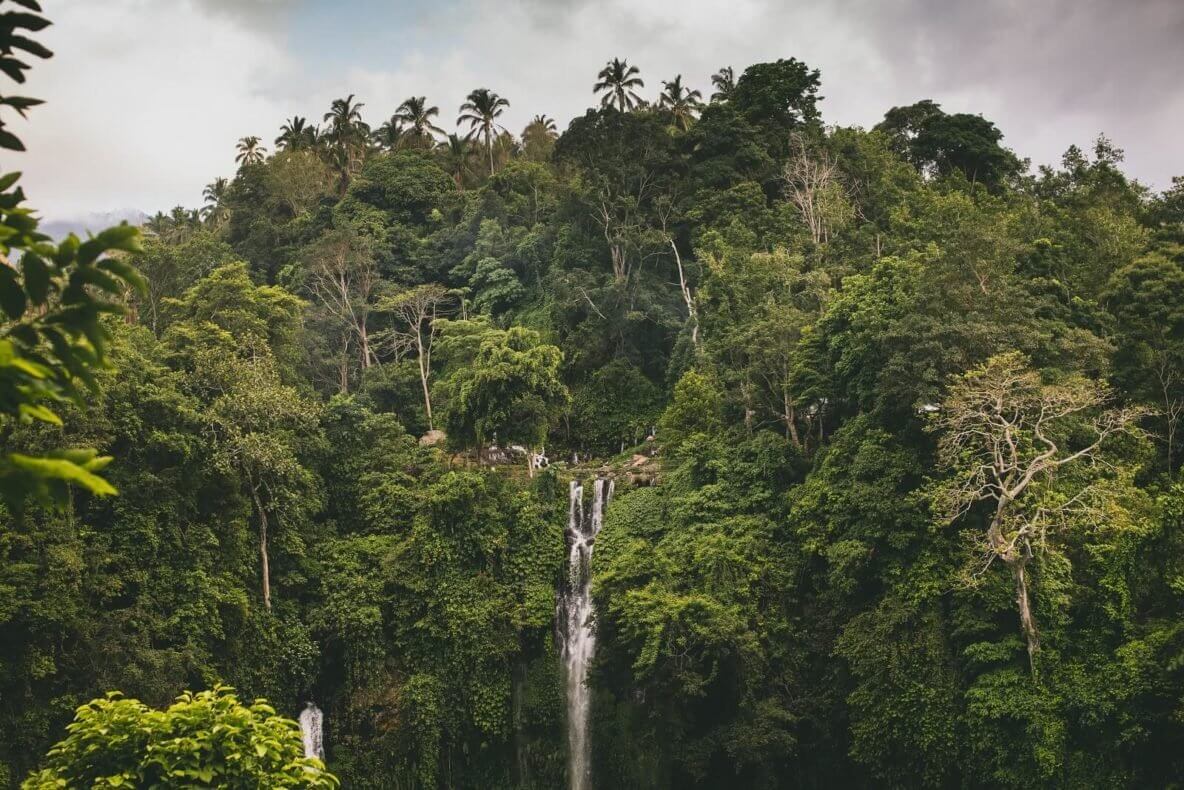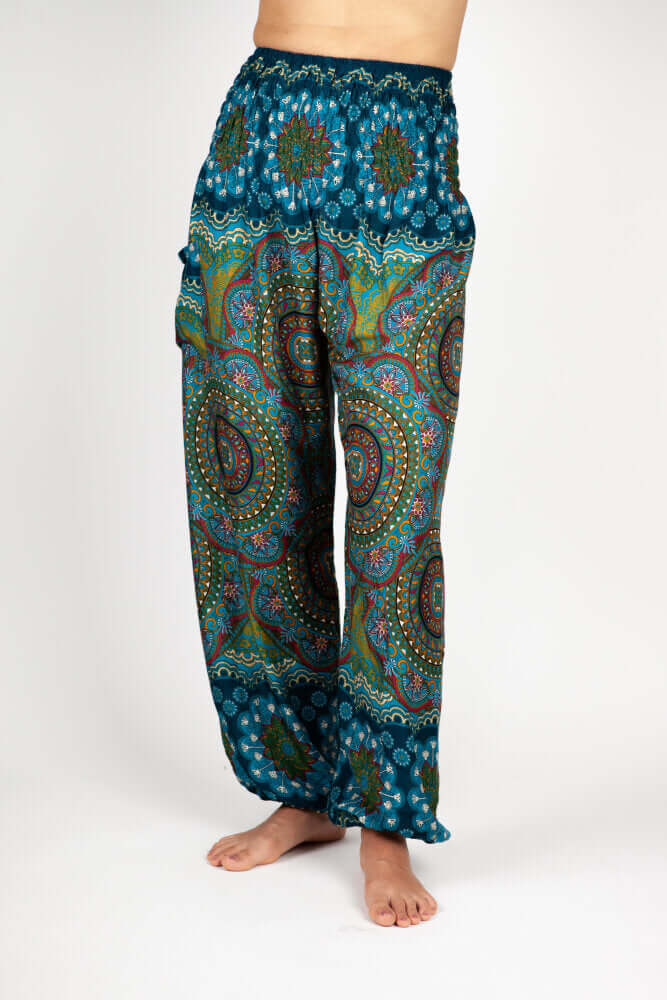
Inhaltsverzeichnis
The palm oil problem
Do you know exactly why palm oil is harmful to the environment? I have to admit that until recently, I had no idea what the problem with palm oil was. Unfortunately, many people – like me – only become aware of this issue when they actively engage with sustainability and the environment. I did hear a few years ago that Nutella wasn't so "good" (mainly) because of the palm oil – but I didn't understand exactly what that meant.
I was shocked when I learned that every second supermarket product contains palm oil and the devastating consequences of using palm oil.
That's why I'd like to draw a little more attention to the issue (especially now after the terrible fires in the Amazon, this is really necessary) and inform you about what the palm oil problem is all about.
What exactly is palm oil?
Palm oil is made from the fruits of the oil palm The oil is extracted from the fruit under pressure and at high temperatures. The oil is then processed to remove any unwanted color, odor, or flavor. With 66 tons produced annually, palm oil is the most widely produced vegetable oil and, with a 30% market share, also the most widely used.
Why is palm oil so popular for making products?
This vegetable oil is very cheap, it is available year-round, and the cultivation of the oil palm is efficient: it has a very high yield. The fat extracted from the fruit has It has a high melting point and is therefore solid at room temperature but still spreadable. Palm oil is also tasteless, colorless, and has a long shelf life due to its high antioxidant and vitamin E content. Due to the special composition of the fat, other liquid oils can be incorporated into it to create a stable, creamy consistency.
These properties make the fat a ideal raw material for industry, because this allows mass-produced goods to be produced cheaply.
Which products contain palm oil?
I hereby challenge you to go to the supermarket and find products that are palm oil-free. That is not so easy. Palm oil is not only found in Margarine, instant soups and biscuits, but also in ready-made pizza, cereals, soaps, creams, makeup, in detergentsl and in many other products.
Unfortunately, that is not all, because the majority of palm oil flows into the Energy generation: It is also mainly used for the production of biodiesel and for the generation of electricity and heat.
Why is palm oil a problem?
The oil palm itself, of course, doesn't pose any problems. The real problem is the demand and the associated production of palm oil.
Oil palms grow best where rainforest grows in a tropical climate with consistently warm and humid conditions. They also require a lot of space. Therefore, the rainforest often has to make way (illegally) for palm plantations. In Latin America, Africa, and Southeast Asia, vast areas of rainforest are cleared and burned every day.
Oil palm plantations are actually the main cause of rainforest destruction in Malaysia and Indonesia. In 2018, approximately 42 football fields of rainforest were destroyed worldwide every minute. These are areas so vast that I can hardly imagine them anymore...
The destruction of the rainforest is damaging the climate.The carbon stored in the soil is released when it is converted into plantations. This way, huge amounts climate-damaging gases into the atmosphere.
In addition, some Animal speciesRainforests represent one of the last remaining habitats for orangutans. The Sumatran tiger and the Bornean pygmy elephant, for example, are also finding themselves with less and less space to live due to the deforestation of the rainforest in Indonesia.
Also the Residents of the growing areas suffer harm: They are often forcibly displaced and lose their land to palm oil companies.
Quite apart from these devastating effects – also for us as consumer Palm oil is more harmful than beneficial to health: refined palm oil contains large amounts of fatty acid esters, which can damage the genetic material and cause cancer.

How do you deal with the problem?
Now the question arises: what's the best course of action? Should we completely abandon palm oil and thus boycott palm oil production? Switch to alternative vegetable oils? Or advocate for more environmentally friendly palm oil production?
Oil palms are particularly productive and therefore require relatively little land for cultivation. Nevertheless, the "how" of production is always important. Therefore, one can advocate for the increased sustainable cultivation of palm oil. Ecologically and socially acceptable cultivation includes Preventing further deforestation, restoring damaged habitats and ensuring the most environmentally friendly production possible / Further processing of oil palm fruits.
If palm oil were replaced by other vegetable oils (z.B. by rapeseed, soy or sunflower oil), more land would be needed and more habitats and species would suffer.
Nevertheless, many environmental activists and organizations are of the opinion that the production and consumption of palm oil should be completely abandoned.
So the whole thing is really not that simple…
How can I avoid palm oil?
Since 2014, manufacturers have been required to disclose whether their products contain palm oil. However, the palm oil found in cosmetics is usually not labeled as "palm oil"...
Names for palm oil on food:
- Palm oil
- Palm fat
- Palm kernel oil
- Vegetable fat/vegetable oil
- Vegetable fat
Names for palm oil on cosmetics:
- Cetearyl/Cetyl
- Lauryl/Lauroyl/Laurate
- Palm/Palmate/Palmitate
- Stearyl/Stearate
On this website you will find an overview of products without palm oil. If you want to avoid palm oil, you should especially choose products from Ferrero and Unilever avoid.
What else can I do?
The following also applies here: Do it Yourself with local ingredients is probably the best way. We should grow more of our own staple foods (as we used to) and not at the expense of the tropical rainforests and the people who live there.When we cook or bake ourselves, we can use regional oils such as rapeseed, corn, linseed, safflower or sunflower oil.
But it is also worth manufacturers to writethat they no longer want to buy their products because of the palm oil they contain. Or they inquire about their palm oil production. Some manufacturers have already changed their production methods.
Besides, it is always a big step, to make other people aware of the palm oil problem and to give the topic more space. Feel free to share this post, for example, so that more people can be reached.
If you would like to learn more about sustainability, mindfulness or healthy eating, take a look here over.




























Leave a comment
This site is protected by hCaptcha and the hCaptcha Privacy Policy and Terms of Service apply.